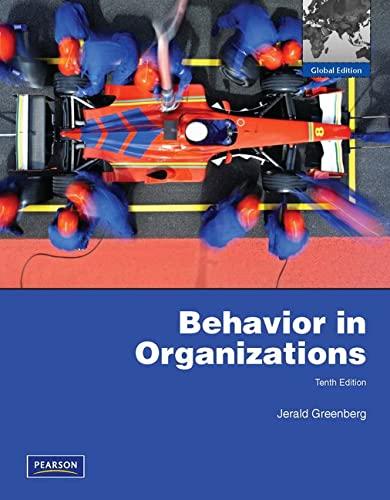We are extremely proud to report our 2009 earnings, which represents our 37th consecutive year of profitability.
Question:
“We are extremely proud to report our 2009 earnings, which represents our 37th consecutive year of profitability.”
That’s a statement that almost no airline executives were making as 2009 slipped into 2010. However, Gary C. Kelly, CEO of Southwest Airlines spoke these words with considerable pride as he addressed company stockholders. Indeed, he had every reason to be proud of the company’s capacity to turn a profit at a time when just about all of its competitors were either at, or beyond, the brink of bankruptcy. The secret, as he boasts, is “our people.”
For many years, Southwest Airlines was famous for having good relations between employees and management.
The company and its employees saw eye-to-eye and agreements about working conditions and pay were met readily. Although that appears to be the case today as well, conditions soured a decade ago. In 2002 and 2003, negotiations focusing around labor practices ground to a painful halt. Even worse, the tone of the negotiations became so angry and bitter that for the first time in the company’s history union leaders issued strong verbal attacks against top management, including Southwest’s then-CEO, James F. Parker.
Employees accused Parker of being inflexible and unreasonable, and expressed strong concerns about the quality of his leadership. Ultimately, the situation became so tense that Parker removed himself from the negotiations and asked Southwest’s former CEO, Herbert D.
Kelleher, to come out of retirement just to resolve the bitter dispute. Fortunately, he succeeded quickly, resolving in less than eight weeks a dispute that had lasted over two years.
For Parker, this failure on his part was the last straw, leading him to resign in mid-2004. In his resignation speech, he stated that he had never found the job to be fun and that the company deserved a leader who could take it to the next level.
Today, Kelleher remains sensitive to his company’s relations with its employees. Addressing an audience at Stanford Business School, Kelleher said, “We’ve never treated them [employees] as adversaries. We’ve always treated them as partners, because if that canoe goes down, we’re all going down with it.” He said Southwest makes a point of including union leaders in company functions, and “if they have an issue, we take care of it as quickly as we possibly can.” During labor negotiations,
“We have fights, but not vendettas. We yell, we throw things, we get a contract and then it’s behind us. It’s not like the Hatfields and McCoys, feuding and still killing each other after generations for reasons they don’t remember.” And, in today’s highly competitive airline business, this surely gives Southwest an edge up on the other carriers. If the figures Mr. Kelly reports are any indication, this surely is the case.
Questions for Discussion
1. What forms of trust are involved in this case and how were they violated?
2. How are issues of cooperation and competition involved in this case?
3. To what extent might the excellent state of labor relations at Southwest have contributed to the company’s record of financial success—especially in a challenging business environment?
Step by Step Answer:






